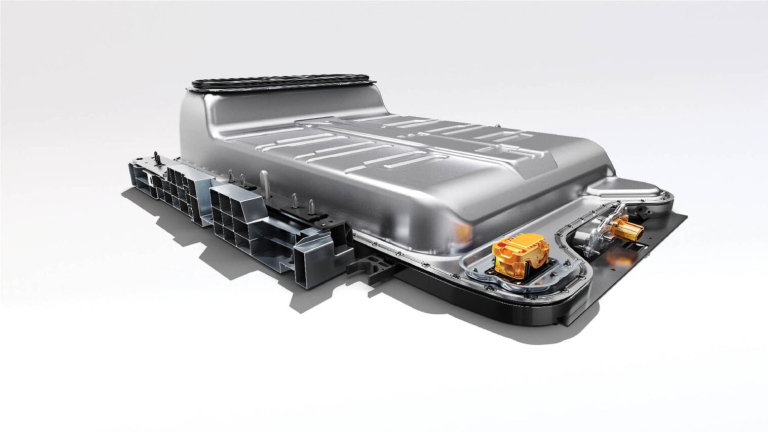Introduction
The rise of autonomous vehicles (AVs) marks a significant shift in the transportation landscape, promising enhanced safety, efficiency, and convenience. Central to the functionality of these self-driving cars is a reliable and efficient power source. Lithium-ion batteries have emerged as the preferred choice for powering AVs due to their high energy density, long cycle life, and proven track record in electric vehicles (EVs). This article delves into the characteristics, advantages, applications, challenges, and future prospects of lithium-ion batteries in autonomous vehicles.

Characteristics of Lithium-Ion Batteries
High Energy Density
Lithium-ion batteries are renowned for their high energy density, which allows them to store substantial amounts of energy within a compact and lightweight form factor. This characteristic is crucial for autonomous vehicles, which require significant energy to power both propulsion and the myriad of sensors, cameras, and computing systems necessary for autonomous operation.
Long Cycle Life
The longevity of lithium-ion batteries makes them ideal for AVs. These batteries can endure numerous charge and discharge cycles while maintaining their capacity, ensuring that AVs can operate reliably over extended periods without frequent battery replacements.
Fast Charging Capability
Autonomous vehicles benefit from the fast charging capabilities of lithium-ion batteries, which can be charged rapidly compared to other battery technologies. This reduces downtime and increases the operational efficiency of AV fleets, making them more practical for commercial applications.
High Efficiency
Lithium-ion batteries boast high energy conversion efficiency, meaning they can effectively convert stored energy into usable power with minimal losses. This efficiency is critical for maximizing the range and performance of autonomous vehicles.
Advantages of Lithium-Ion Batteries in Autonomous Vehicles
Powering Advanced Sensors and Systems
Autonomous vehicles rely on a suite of advanced sensors, including LiDAR, radar, cameras, and ultrasonic sensors, to navigate and make decisions. These systems require a stable and continuous power supply, which lithium-ion batteries can provide efficiently.
Supporting AI and Computing Needs
The artificial intelligence (AI) and machine learning algorithms that enable AVs to process data and make real-time decisions demand substantial computational power. Lithium-ion batteries provide the necessary energy to support these high-performance computing systems.
Enhancing Vehicle Range
The high energy density of lithium-ion batteries translates to an extended driving range for autonomous vehicles. This is particularly important for ride-hailing services and delivery fleets, where longer ranges reduce the need for frequent recharging and improve operational efficiency.
Enabling Lightweight Designs
The lightweight nature of lithium-ion batteries helps in reducing the overall weight of autonomous vehicles, contributing to better energy efficiency and performance. Lighter vehicles require less energy to move, further extending their range and reducing energy consumption.
Applications of Lithium-Ion Batteries in Autonomous Vehicles
Passenger Vehicles
Autonomous passenger vehicles, from self-driving taxis to personal cars, rely on lithium-ion batteries to power their propulsion and autonomous systems. These batteries ensure that AVs can operate safely and efficiently, providing a reliable alternative to traditional human-driven vehicles.
Commercial Fleets
Commercial AV fleets, including delivery vans, trucks, and public transportation, benefit significantly from lithium-ion batteries. The high energy density and long cycle life of these batteries enable efficient and cost-effective operation of fleet vehicles, which are often in use for extended periods.
Ride-Hailing Services
Ride-hailing companies are increasingly adopting autonomous vehicles to reduce operational costs and improve service efficiency. Lithium-ion batteries provide the energy required for these vehicles to operate continuously, meet customer demand, and minimize downtime.
Challenges of Lithium-Ion Batteries in Autonomous Vehicles
Safety Concerns
Safety is a paramount concern for lithium-ion batteries, as thermal runaway and battery fires pose significant risks. Ensuring the safety and stability of these batteries in autonomous vehicles requires advanced battery management systems (BMS) and robust thermal management solutions.
Range Anxiety
While lithium-ion batteries offer high energy density, range anxiety— the fear of running out of battery power before reaching a charging station—remains a challenge. Increasing the range and improving the charging infrastructure are critical to addressing this issue.
High Production Costs
The production of lithium-ion batteries involves expensive materials and complex manufacturing processes. Reducing these costs is essential to making autonomous vehicles more affordable and accessible to a broader market.
Recycling and Disposal
The disposal and recycling of lithium-ion batteries present environmental challenges. Developing sustainable recycling methods and improving the recyclability of battery components are crucial for minimizing the environmental impact of AVs.
Future Prospects and Innovations
Solid-State Batteries
Solid-state batteries, which use a solid electrolyte instead of a liquid one, offer significant advantages over traditional lithium-ion batteries, including higher energy density, improved safety, and longer cycle life. These advancements could further enhance the performance and reliability of autonomous vehicles.
Battery Management Systems (BMS)
Advanced BMS are being developed to improve the safety, efficiency, and longevity of lithium-ion batteries. These systems monitor battery health, optimize charging and discharging cycles, and prevent thermal runaway, ensuring the safe operation of autonomous vehicles.
Fast Charging Technologies
Innovations in fast charging technologies are set to reduce charging times significantly. Ultra-fast chargers and advancements in charging infrastructure will make it more convenient for AVs to recharge, addressing range anxiety and increasing their practicality.
Second-Life Applications
Repurposing used lithium-ion batteries for second-life applications, such as stationary energy storage, can extend their useful life and reduce environmental impact. This approach also provides a sustainable solution for managing the growing number of retired batteries from autonomous vehicles.
Conclusion
Lithium-ion batteries are integral to the development and deployment of autonomous vehicles, offering high energy density, long cycle life, and fast charging capabilities. Despite challenges related to safety, range anxiety, production costs, and recycling, ongoing research and innovations in battery technology are paving the way for safer, more efficient, and cost-effective energy storage solutions. As advancements continue, lithium-ion batteries will play a crucial role in powering the future of autonomous transportation, enabling a new era of mobility that is safer, more efficient, and more sustainable.

